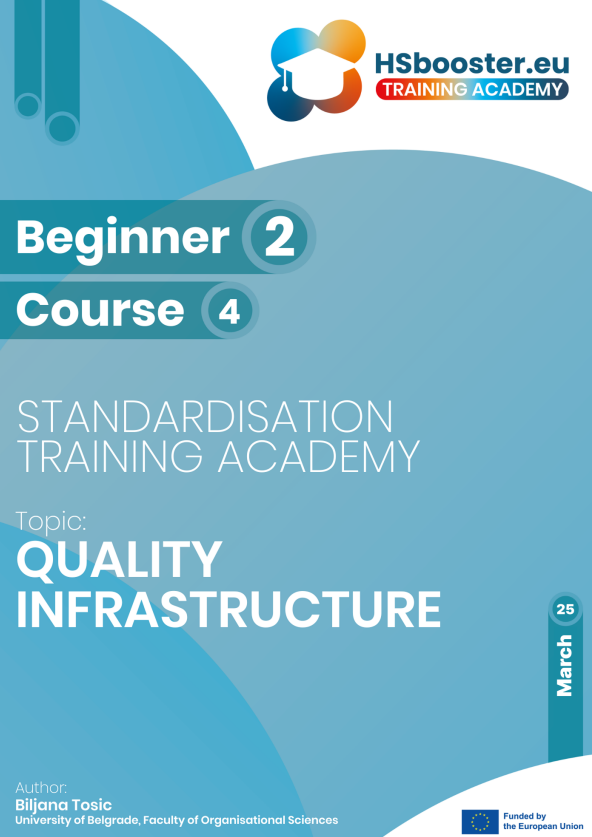- Beginner 2, Course 4
The members of the International Network on Quality Infrastructure (INetQI) have recently agreed upon the new definition of Quality Infrastructure (QI) as ‘’the system comprising the organisations (public and private), together with the policies, relevant legal and regulatory framework, and practices needed to support and enhance the quality, safety and environmental soundness of goods, services, and processes’’. Effective QI is required for successful activities of both domestic and foreign markets, thereby encouraging sustainable development and environmental and social well-being.
Explore the following interconnected training module:
- Course 4.1: The Role of Metrology in Quality Infrastructure
- Course 4.2: The Role of Standardisation in Quality Infrastructure
- Course 4.3: The Role of Accreditation in Quality Infrastructure
- Course 4.4: The Role of Conformity Assessment in Quality Infrastructure
- Course 4.5: The Role of Market Surveillance in Quality Infrastructure
After completing this module, you should be able to:
- Understand that Quality Infrastructure (QI) denotes the ecosystem which consists of public and private organisations, together with the policies, relevant legal and regulatory frameworks, and environments required to successfully operate at domestic and foreign markets by encouraging sustainable development and environmental and social well-being;
- Understand that National Quality Infrastructure (NQI) denotes the ecosystem which consists of three core components (metrology, standardisation, and accreditation) without which its other parts (e.g. calibration, testing, inspection, certification, and market surveillance) cannot operate optimally; and
- Understand that QI may also be considered at the regional and international levels, considering most governmental and non-governmental organisations that have been established over the years, as well as multinational companies offering a broad range of conformity assessment services in many countries over the world.

Beginner 2
Training Courses
University of Belgrade in Serbia

